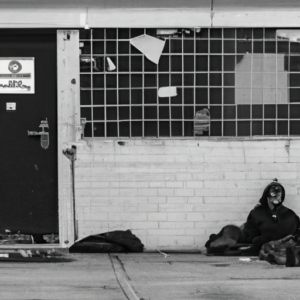The Unseen Impacts of the Canadian Opioid Crisis
As we are tirelessly battling the ongoing opioid crisis in Canada, disturbing new data emerges on the indirect consequences of this public health emergency.
Unintended Consequences Increase
While it’s well known that opioid addiction leads to devastating health outcomes and death, the crisis hasn’t contained itself within the realm of health alone. It’s been seeping into various aspects of society, creating a ripple effect that touches everyone, including the most vulnerable of our population – the homeless.
Canada has seen a steady increase in crime rates, particularly property offenses, fueled by the opioid crisis. Addiction, desperate for quick cash to support their habit, often turns to theft and other criminal activities. A portion of this criminal activity can be attributed to the unemployed, homeless sector of the population, which opioid addiction significantly contributes to.
The Intersection of Opioids and Homelessness
Homelessness and opioid addiction are intertwined in a destructive feedback loop. The hardships and struggles of life on the streets can often lead to substance use, and subsequently, addiction. Conversely, the financial burden of addiction often leads to job loss, failed relationships, and ultimately, homelessness. Nevertheless, addressing one issue without considering the other won’t result in effective solutions to either.
Supporting the homeless population, often marginalized and stigmatized, becomes even more critical within the context of the opioid crisis. This dual-pronged issue is more than an addiction problem – it’s a humanitarian one. Attention should be given to providing adequate resources, humane treatments for addiction, and pathways out of homelessness.
Efforts to Combat the Crisis
However, it’s not all despair. Encouraging steps have been taken to combat the opioid crisis and its societal impacts, particularly in the homeless sector. One such approach is the distribution of naloxone, a drug that can reverse opioid overdose, to at-risk individuals. This life-saving intervention could be a crucial step in curbing the increasing mortality rate from opioid overdoses.
Moreover, there’ve been efforts to initiate an opioid class action suit against major pharmaceutical companies responsible for marketing and distributing these addictive drugs. The success of such a lawsuit could potentially bring about a significant shift in the battle against the opioid crisis, holding those responsible to account.
Key Points to Remember
- The opioid crisis has societal impacts extending beyond direct health outcomes
- Increased rates of crime can be linked to the opioid crisis, leading to a surge in theft and other property offenses
- Homelessness and opioid addiction are interconnected in a vicious cycle, each exacerbating the other
- Efforts are being made to combat the crisis, including the distribution of naloxone and instigating an opioid class action suit
In Conclusion
The true impact of the opioid crisis reverberates deeply within Canadian society, affecting multiple sectors. It presents a clear narrative: the opioid crisis isn’t a standalone issue, and it can’t be treated as such. Siloed strategies are doomed to fail in addressing this complex, multi-faceted problem. It requires an integrated approach that acknowledges and addresses the deeply intertwined issues of opioid addiction, homelessness, and crime.
It is our due responsibility as civic and community leaders to recognize these connections and strive towards integrated policies that can serve the greater good of our society. Although the task is challenging, the ongoing efforts in distributing naloxone and pushing towards an opioid class action suit, among others, offer hope that we are moving in the right direction towards tackling this crisis.
